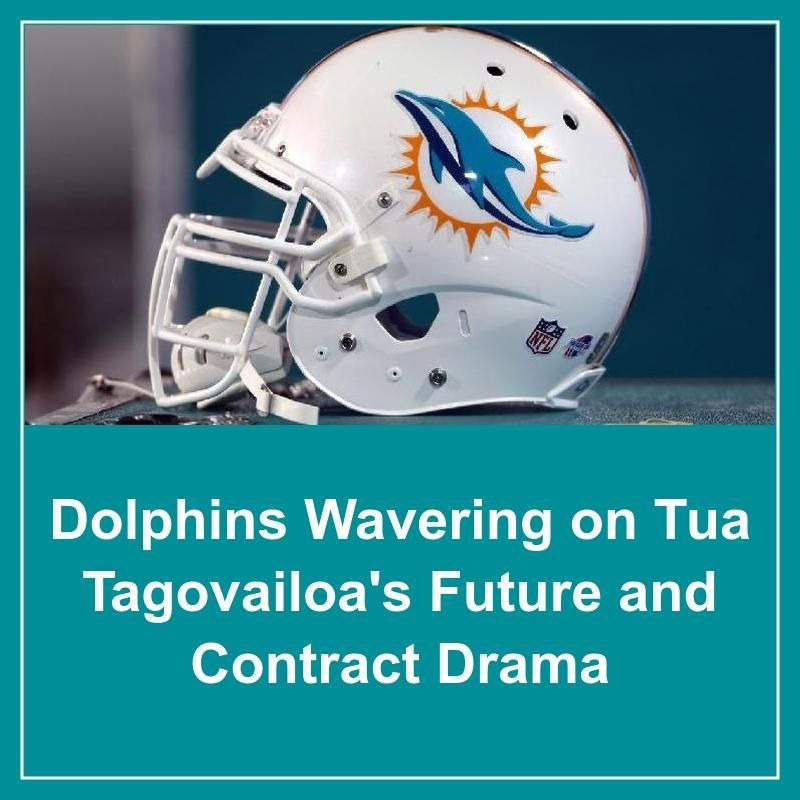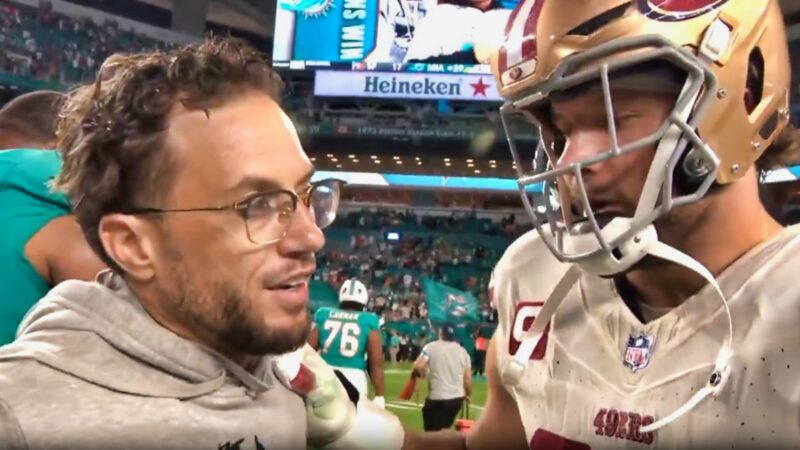Recent information from Jeff Darlington at ESPN has put the Miami Dolphins and their quarterback situation under a microscope. The concern hinges on whether Tua Tagovailoa is being valued appropriately by his team, especially when comparisons are drawn with other NFL quarterbacks like Jared Goff and Trevor Lawrence.
Darlington’s report casts doubt on the Dolphins’ commitment to securing Tagovailoa for the long term, suggesting that the financial compensation offered falls short of what has been extended to his peers. This revelation comes amidst growing uncertainty about a deal materializing, as Darlington tones down his optimism regarding a positive outcome.
The Dolphins, through General Manager Chris Grier, have voiced their intention to keep Tagovailoa as a foundational part of the franchise’s future. However, current negotiations tell a different story. The apparent discrepancy in what is being offered to Tagovailoa sends a mixed signal: the organization values him, but perhaps not to the extent that many assumed.
The handling of Tagovailoa’s contract extension is just one example in a pattern of negotiation behaviors by Grier. He has previously drawn out negotiations or remained inflexible on contract terms, leading to the departure of key players like Christian Wilkins and Robert Hunt. More recently, procrastination on Jaylen Waddle’s extension resulted in the Dolphins paying a heftier price than initially necessary.
Grier’s track record with short-term contracts and spending big on players like Byron Jones and Xavien Howard contrasts sharply with his approach to longer commitments for core team members. This has left the Dolphins in a precarious situation, especially as details emerge about the ongoing contract negotiations with Tagovailoa.
Tagovailoa himself hinted at market dynamics influencing contract discussions, particularly in light of Goff’s recent deal. With the quarterback market evolving rapidly, the Dolphins’ reluctance to match or exceed established benchmarks is causing frustration.
The specifics of the contract proposal to Tagovailoa remain unclear, including how close or far it is from the figures discussed for Goff and Lawrence. Speculation suggests that differences could revolve around the total guaranteed money, with incentives and clauses potentially being sticking points.
What these negotiations reveal is a potential lack of confidence or willingness from the Dolphins to commit fully to Tagovailoa as their uncontested franchise quarterback. If financial terms are indeed the issue, Miami’s hesitation could signify deeper concerns about durability or consistent performance.
As the situation unfolds, the Dolphins face a critical decision. Will they align Tagovailoa’s contract with the shifting market trends, or will their negotiation strategy result in a missed opportunity to solidify their quarterback position for years to come? Only time will tell if Grier and the Dolphins’ front office can navigate these choppy waters successfully.




